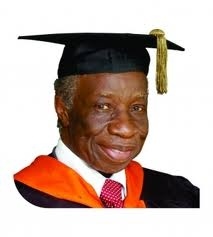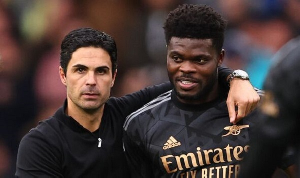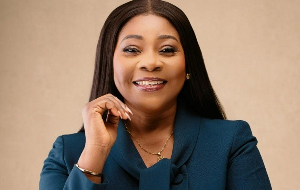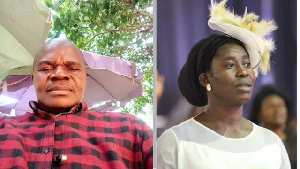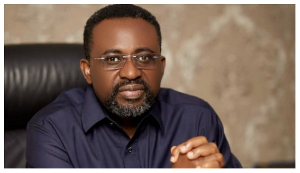Professor Francis K. Allotey, President of Ghana Academy of Arts and Sciences has proposed that Ghana should adopt as a policy both the online and face-to-face learning methods of instruction.
He said the hybrid methods of instruction has the potential to reduce the rising cost of education, the shortage of qualified teachers and professors, as well as making easy, accessibility of education to all.
Prof Allotey was speaking at the 2013 Founder’s Week Celebrations of the Ghana Academy of Arts and Science (GAAS) in Accra.
The 2013 Founder’s Week Celebration lecture which is on the theme: “Education for National Development,” was attended by people from academia and the public.
The event was also used to induct 10 new GAAS Fellows and two Honorary Fellows into the academy, bringing the total number of distinguish personalities in the academy to 120 and eight Honorary Fellows.
The new are Fellows Mr Kofi Annan, former United Nations Secretary General, Peter Cardinal Kodwo Appiah Turkson, President, Pontifical Council for Justice and Peace, Vatican City, Reverend Canon Prof John Samuel Pobee, Vicar-General, Anglican Diocese of Accra, Prof Dr Daniel Buor, Vice Chancellor, Valley View University and Prof Wisdom J. Tettey, Dean of the Faculty of Creative and Critical Studies, University of British Columbia, Canada.
The rest in the Sciences category are Prof Yaw Serfor-Armah, Director, Graduate School of Nuclear and Allied Sciences, University of Ghana, Prof Henry Nii Adziri Wellington, Department of Archaeology and Heritage Studies, University of Ghana, Prof Emmanuel Owusu-Bennoah, former Director-General of the Council for Scientific and Industrial Research, Prof Benjamin Jabez Botwe Nyarko, Director-General, Ghana Atomic Energy Commission, Dr Rose Emma Mamaa Entsua-Mensah, Deputy Director –General, Council for Scientific and Industrial Research.
The two Honorary Fellows are Prof Volker ter Meulen, immediate past President of the German National Academy of Science-Leopoldina and Co-chair of the Global Network of Science Academies and Prof Lorna A. Casselton, Department of Plant Sciences, University of Oxford and Vice President of the Royal Society, UK.
Prof Allotey, who spoke on the topic: “Education in the age rapid technological advancement”, said Ghana must adopt a new system of education that emphasise rational thinking and excite young people to be creative, imaginative and innovative.
He said for the country to have the competitive edge it must train people to do something that is difficult to automate since the computer software is now taking over much of the things done by machine just as the machines also usurped the muscle power in the industrial age.
Prof Allotey noted that studies have shown that standard lecturing format is not the most effective mode of instruction.
He said the most efficient methods of teaching are those used in active learning and interactive engagement between faculty and students, as well as students and their peers.
He said one of the main reasons why many of the elite universities are joining online platforms is that the programme offers them the opportunity to move much of the traditional lecturing-required for conveying the necessary material from inside to outside the classroom in an online format which are more interactive and engaging.
He said the challenges the educational sector faces in this age of fast scientific advancement is how to prepare the children of today for a world that is yet to be created and jobs to be generated.
General News of Tuesday, 19 November 2013
Source: GNA
Ghana must adopt hybrid teaching methods - Prof Allotey
